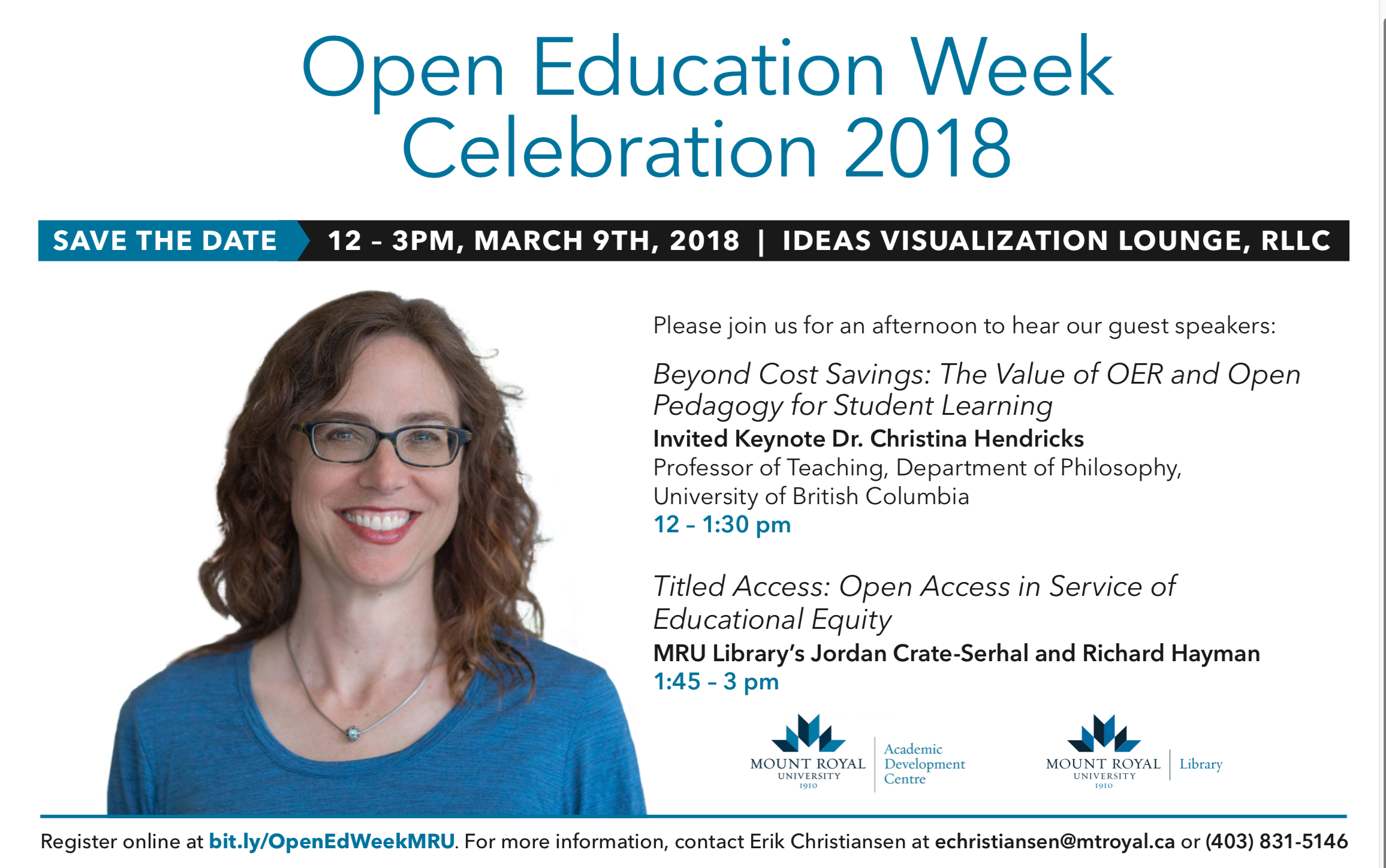I’m excited to be giving a lightning talk at the Open Education Research Institute hosted by Kwantlen Polytechnic University this week–thank you so much to Rajiv Jhangiani and Urooj Nizami from KPU for the invitation. I’ll also be acting as an OE research mentor for a group of participants in the Institute, which is a wonderful honour though to be honest I still feel a bit of a novice myself in this area. I was trained as a researcher in philosophy, with no information about empirical research with people, which is what I’ve had to try to learn along the way as I do research on open education. Not that all research on open edu has to be empirical…there is a good deal of theoretical research of great significance as well!
But I have done some empirical research on open educational resources in particular, and I must say a big thank you to Rajiv Jhangiani, Jessie Key, Clint Lalonde, and Beck Pitt for my first intro to such research, as we worked on the 2016 BCcampus report: Exploring Faculty Use of OER in British Columbia Post-secondary Institutions. This was part of the work that Rajiv, Jessie and I did during our 2014-2015 BCcampus Open Textbook Fellowship program. I am also grateful to have received an Open Education Group OER Research Fellowship in 2015, where I learned a lot from John S. Hilton and the many other OER Research Fellows as we met and discussed projects.
Of late, I’ve been working with a couple of colleagues on a research project about student perceptions of an open pedagogy project. Specifically, we surveyed students who created case studies for Forestry and Conservation courses, most of which were shared openly and with an open license, on the UBC Open Case Studies website. We started this research back in 2018, when we administered surveys to students in three courses, in Fall 2108 and Spring 2019. Then in 2019 we began coding the data, finishing up around the end of 2019 if memory serves, and then…COVID-19 and we dropped it altogether for a year.
We recently picked this project back up and are excited to report the results and write up an article to submit for publication. The lightning talk at OERI will be the first time I’ll be talking about this project to a wider audience. We’re not completely ready with full results; we have coded the data and have started pulling out a few themes, but we haven’t done a full analysis yet. So the lightning talk will focus on:
- motivations, including (at the time) not a lot of research literature on student perceptions of open pedagogy projects
- methods
- a few preliminary results
That should be easily enough to fill the seven-minute time slot I have!
In the rest of this post, I’m basically starting on the literature review for the article we’ll be working on, by reviewing some of the literature on open educational practices, open pedagogy, and student perceptions of open pedagogy. What follows is a not exhaustive review of literature with some quotes, about open pedagogy, open educational practices, students as producers, and student perceptions of open pedagogy. I can’t imagine we’ll use all of this in our article, but it’s useful to have it in one place!
Continue reading →

